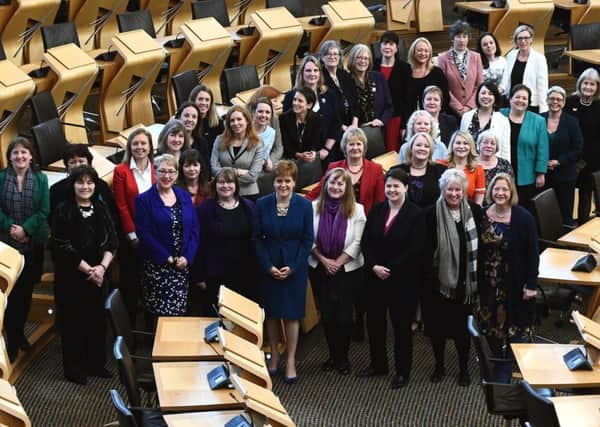Leader comment: Politics should not be a man's game


Despite women making up about half the population, only 23 per cent of the world’s political leaders are female; and just three women – Theresa May, Angela Merkel and Erna Solberg – run a G20 country.
Many in Scotland are rightly proud that the leaders of our two largest parties are women, with Nicola Sturgeon and Ruth Davidson smashing the political glass ceiling in some style.
Advertisement
Hide AdAdvertisement
Hide AdHowever the country is still a long way from gender equality among its elected representatives, with women making up 36 per cent of MSPs and 29 per cent of MPs and also of local councillors.
It has long been recognised that women and men are equally able to be politicians and yet it has remained a male-dominated sphere.
That the Electoral Reform Society is now backing calls for legislation to ensure half of parties’ candidates are women shows how poorly the parties have done in creating a better balance.
There are good reasons why parliament should more closely reflect the make-up of the population. Those with different backgrounds have different experiences and perspectives that can result in genuine insights into how to make life better for everyone in Scotland.
A man does not need to be actively sexist to overlook or fail to properly consider issues that largely affect women, which may simply not occur to him because he lacks awareness. Woman can also bring a different attitude and style to politics and act as a role model for the next generation, proving that women can rise to the top.
Legislation to require a 50-50 spilt of candidates could be a blunt instrument with the risk of unintended consequences. Another potential problem is that at local level there can be a dearth of candidates – not everyone wants to listen to lengthy complaints about potholes, bus timetables and the noise from number 26.
So it might be better, if legislation is introduced, to trial it at Holyrood first, with a sunset clause so that the law would expire unless it is renewed. It would be better still if political parties could actually achieve a reasonable balance voluntarily, but patience is clearly running out. Another way to improve the situation at Holyrood might be to reduce the total number of MSPs by kicking out some of the men. But then, turkeys seldom vote for Christmas.
